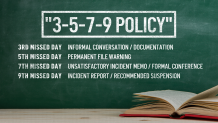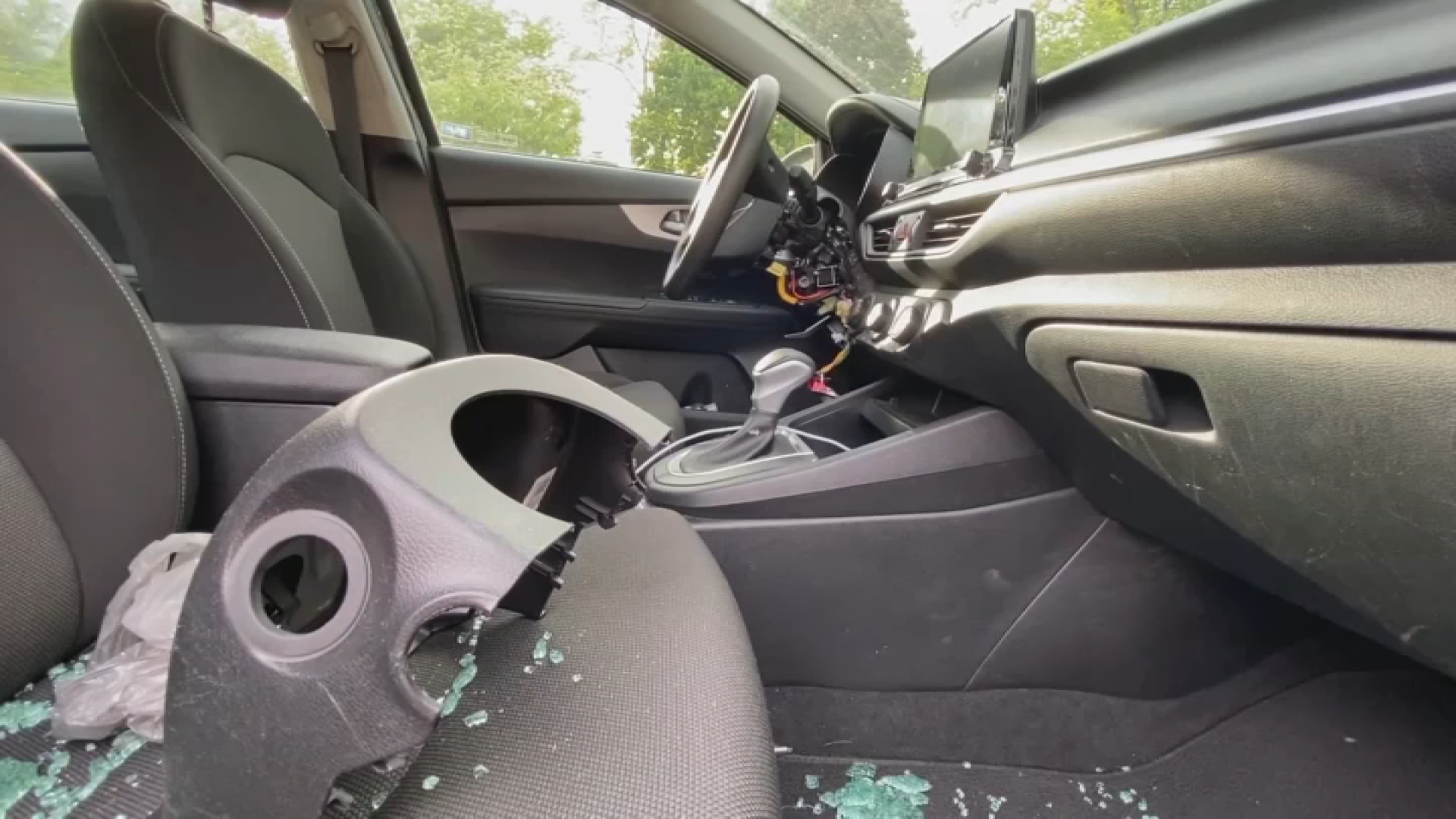Educators and members of the Philadelphia Federation of Teachers protested on Thursday outside the Spring Garden offices of the School District of Philadelphia, calling for an end to a policy that, they said, punishes teachers for using earned sick days.
While union members protested outside the building, a school board meeting was underway inside.
"It just feels like there's punishments and there's consequences and there's write-ups that we are worried about receiving if we want to take a sick day," special education teacher Peter Pijanowski said.
One educator with the school district shared her story and explained why she is afraid to use her sick days. During the meeting, she explained that she is the survivor of the Pennypack Park rape case.
Get Philly local news, weather forecasts, sports and entertainment stories to your inbox. Sign up for NBC Philadelphia newsletters.
"I have a court case coming up for which I am the survivor of the Pennypack Park rape back in 2007. I thought I was going to have to face my attacker in January, so mental issues got me sick and I had to call out. I don’t know if that will be another occurrence. This is why this rule must be abolished," Pre-K teachers assistant Blossom Kaleo said.
According to a statement from the federation, the group -- along with the Caucus of Working Educators -- planned the protest ahead of a planned afternoon meeting of the district's Board of Education and delivered a petition denouncing the district's 3-5-7-9 policy.
Local
Breaking news and the stories that matter to your neighborhood.
The teachers' union contract allows ten sick days a year, but the district can penalize them once they accumulate a few.
After three single or consecutive sick days, principals are instructed to informally talk to the employee and document their conversation.
After missing five days, the teacher gets a warning.
Then, after seven days missed, an "unsatisfactory incident report" will go into the teacher's file along with a conference.
According to the policy, a teacher who takes nine of the allowed ten sick days can be suspended.

According to the federation, the policy "subjects educators and support staff to discipline for using earned sick leave, and results in staff attending school while sick, delaying necessary medical appointments and diagnoses, and being forced to choose between disciplinary write-ups and taking care of their own and their family members’ health needs."
"I am afraid to call out because I am sick, but then I'm teaching kids," Kaleo said.
In a statement, the federation explained that the policy -- which the group said stems from a nearly 40-year-old arbitration effort -- punished teachers after the “occurrences” of using sick time to recover from illnesses, go to medical appointments or attend to family members' needs.
An occurrence, the group notes, consists of an educator using three or fewer days of consecutive sick time.
"Discipline of a teacher for poor attendance, including suspension or termination, is extremely rare," the school district said in a statement in part. "We offer many days of paid time off per year and no teacher should come to work when they are sick. Our leave benefits also include a very unique wage continuation program for teachers who need long-term leave beyond their leave balances. The Talent Office, with consultation from the Academic Services division, will review our current processes after this school year to identify areas for improvement as we seek to promote staff attendance and wellness."
Educators who plan to protest claim the policy is "outdated."
“This policy is dehumanizing in that it creates fear that stems from circumstances that are often beyond educators’ control. In a district that claims to prioritize staff and student safety, such an attendance policy does the opposite: educators fear repercussions of using their sick time to recover, take care of their families, attend necessary medical appointments, and more," said Shira Cohen, a middle school math teacher and Philadelphia Federation of Teachers member, said in a statement. "PFT members have delayed diagnoses and treatments of life-threatening illnesses due to this discipline policy. Arbitration or not, we know that the Board of Education can choose to overhaul this level of discipline for occurrences; we demand an end to 3-5-7-9 immediately.”
"It's punitive, it's abysmal," Pijanowski told NBC10 after the meeting. "I'd like to stay with the district for a long time, and I just get worried that life does get in the way."
They delivered the petition signed by 2,000 members that demands an end to this discipline policy at the Board of Education's meeting.
Sign up for our Breaking newsletter to get the most urgent news stories in your inbox.



